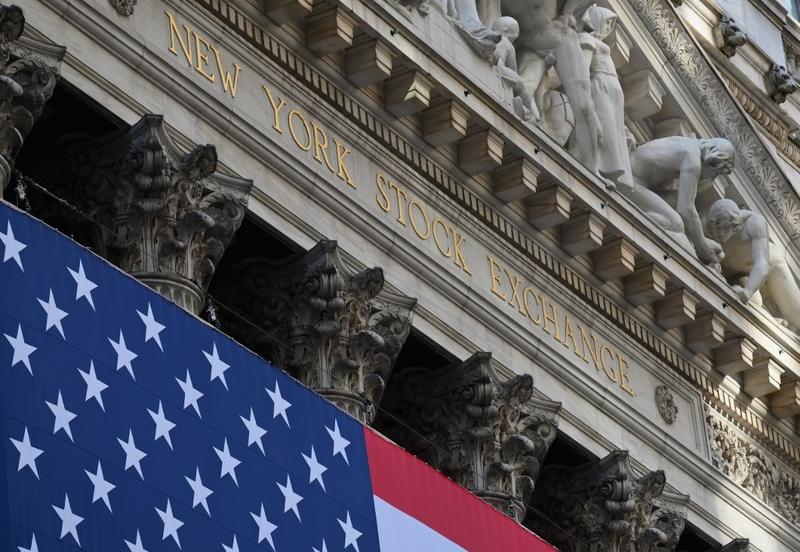 In this Nov 16, 2020 photo, a view of the New York Stock Exchange (NYSE) at Wall Street is seen in New York City. (ANGELA WEISS / AFP)
In this Nov 16, 2020 photo, a view of the New York Stock Exchange (NYSE) at Wall Street is seen in New York City. (ANGELA WEISS / AFP)
Politics and stock markets are intertwined, especially in the case of the US and China.
That was starkly evident this week, when the New York Stock Exchange, or NYSE, reversed itself late on Monday on plans to delist the shares of China Mobile, China Telecom and China Unicom (Hong Kong).
Many investors are looking to increase holdings of Chinese stocks on the growth outlook in an economy recovering from the pandemic
But reports emerged late on Tuesday that the NYSE may not be done with reversals.
The NYSE had cited talks with the Office of Foreign Assets Control, or OFAC, within the Treasury Department as the reason for its reversal on Monday.
ALSO READ: NYSE U-turns on delisting China's telecoms
The exchange said that it had consulted "relevant regulatory authorities" about an executive order that US President Donald Trump signed in November as part of a push to check China's growing economic might. The order banned US investment in 35 companies that the US Department of Defense said have ties to China's military.
"The last thing the NYSE wants to do is have to delist these Chinese companies," Alan Seem, a partner at law firm Jones Day, told The Wall Street Journal. Seem previously worked on the initial public offerings of China Mobile, China Telecom and other Chinese companies.
However, US Treasury Secretary Steven Mnuchin reportedly opposed the NYSE reversal.
"Mnuchin called@NYSE's (President Stacey) Cunningham to say he disagrees w/the exchanges decision to reverse course on the Chinese Telecom dealing," a Bloomberg News reporter wrote on Twitter. And a report on Tuesday evening by Bloomberg citing three sources said the NYSE would revert to its original delisting plan.
Ambiguity highlighted
Reuters reported that the NYSE may have first reversed itself over ambiguity about whether the companies were covered in the order.
"Some funds that had an obligation to unload these shares will now need to buy them back," Jackson Wong, director of asset management at Amber Hill Capital in Hong Kong, told Bloomberg.
Whatever happens with the listings, there still will be some political uncertainty as the US President-elect Joe Biden's administration is set to start on Jan 20.
"The Biden team will prefer a much more nuanced approach to these issues, with clear criteria for controlling both US technology exports to Chinese companies, and for considering restrictions on trading in the securities of specific Chinese firms," Paul Triolo, head of Eurasia Group's geo-technology practice, told Barron's.
READ MORE: NYSE scraps plan to delist shares of Chinese telecom giants
Chinese Foreign Ministry spokeswoman Hua Chunying said on Tuesday that the "status of the US as an international financial center depends on global companies and investors' trust in the tolerance and certainty of its rules and systems".
The three Chinese telecom operators' American depositary receipts, or ADRs, on the NYSE account for less than 2 percent of their equity. Investors also can swap their ADR holdings for Hong Kong-listed shares.
Many investors are looking to increase holdings of Chinese stocks on the growth outlook in an economy recovering from the pandemic.


